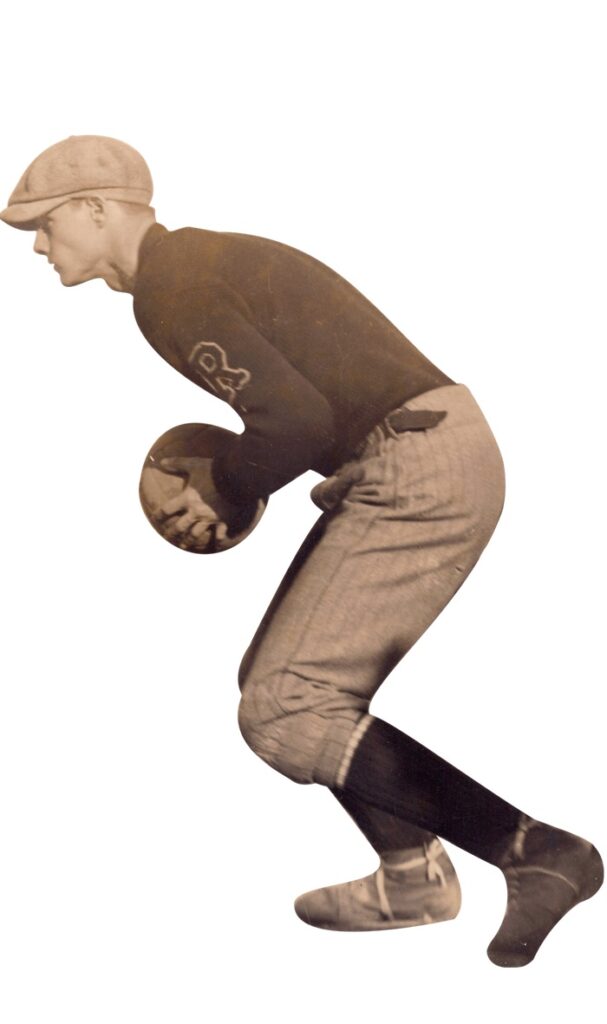
Sport: Soccer
Born: January 19, 1910
Died: January, 1978
Town: Bayonne, New Jersey
Stanley Chesney was born January 19, 1910 in Bayonne. He was the second of five children born to Julius and Marceila Chesney, Lithuanian immigrants. Quick, strong and coordinated, Stan grew up in the soccer hotbed of Hudson County. He rooted for local stars like Archie Stark and Jimmy Douglas, and was a contemporary of Bayonne-born Razzo Carroll, one of the state’s best all-around athletes. Stan began making a name for himself as a goalkeeper and, at the age of 17, signed his first contract to play for the hometown Bayonne Rovers.
A star baseball player at Bayonne High School, Stan also played for sandlot teams in the area. He was good enough to earn a minor-league contract with the Cardinals, and played one season in their system, for Danville of the Three-I League. Stan also earned extra cash playing basketball; he was a top scorer and rebounder for a number of semipro clubs. It is no coincidence that Stan excelled in these sports and became a goalkeeper; the hand-eye coordination of baseball and basketball—as well as the explosive power demanded by these sports— are ideal for a keeper.
During the 1920s, Stan played for the company team of Babcock & Wilcox, a manufacturer of boilers based in Bayonne. In 1931, Hungarian soccer star Erno Schwartz founded the New York Americans. He signed Stan that season and he played for the Americans for the rest of his career. In 1933, Stan helped the club reach the finals of the National Challenge Cup (now the US Open Cup), where they fell to Stix, Baer & Fuller FC, 1–0 and 2–1.
The Americans were one of the top teams in the American Soccer League. They won the ASL title in 1936 and, in 1937, reached the National Challenge Cup finals again, where they faced the same club as in 1933, now playing as the St. Louis Shamrocks. The Americans won the championship by an aggregate of 4–2. Stan allowed one goal in each game. The Shamrocks won the first leg 1–0, but the Americans blew them out 4–1 in the next match.
During the 1930s, Stan was the gold standard for US goalkeepers. Among those who idolized him and copied his style was fellow New Jerseyan Gene Olaff, who would one day join him as a Soccer Hall of Fame inductee. During the Depression, the US national team played in fewer than 10 official matches against foreign elevens, and Stan was not picked for any of those games. However, he was dubbed “The International Man,” as he was an almost automatic selection for ASL contests against visiting foreign teams. During the 1930s, Stan played against clubs from, England, Scotland, Mexico, Cuba and Brazil, among others.
Soccer was a dangerous game during this time. In a 1941 game in Baltimore, Stan attempted to punch a high ball out of the box but instead punched star forward Charlie Ernst in the face, opening up a horrendous wound. The Baltimore fans stormed the field and Stan barely escaped with his life.
Stan retired as a competitive player during World War II, but was lured back to active duty by Schwartz in 1948. The Americans finished in a three-way tie in the ASL standings. A playoff for the league title ensued, with Stan’s club facing off against the Philadelphia Nationals in the deciding match. The game was tied 3–3 with darkness falling, and the title was awarded to Philadelphia on a technicality.
Stan was inducted into the National Soccer Hall of Fame in 1966. He passed away in Cleveland in 1978 at the age of 68.